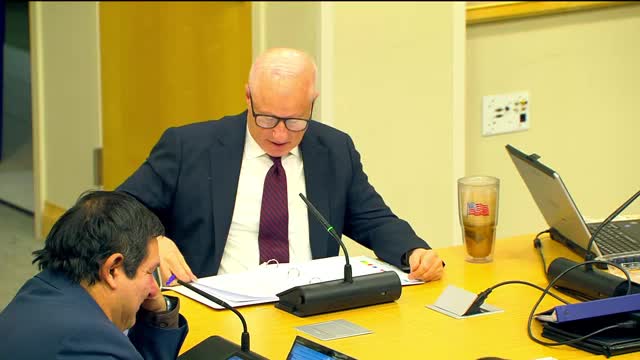Aurora moves to align camping-abatement ordinance with recent Supreme Court ruling despite concerns about impacts
Get AI-powered insights, summaries, and transcripts
Subscribe
Summary
Council advanced an ordinance change to align Aurora's camping and abatement policy with the Grants Pass Supreme Court decision, removing some notice and shelter-availability requirements; council members and staff raised concerns about criminal penalties, litigation risk, resource constraints and requested further data.
Mayor Pro Tem Sundberg and housing and public-safety staff presented a proposed change to Aurora's camping/abatement ordinance (item 5a) intended to align local rules with recent case law referenced as the Grants Pass decision. Sundberg said the change "align[s] with the latest supreme court ruling" and emphasized outreach teams want unhoused people to accept services but that many refuse.
Staff clarified the ordinance revision would not require a shelter option in every abatement and would remove the previously required 72-hour posting/notice period for some abatement circumstances. Jessica (housing) said the change "is essentially providing us with more options on our side" and that nightly shelter bed space would increase starting Jan. 21 by using portions of the navigation campus while construction continues.
Council members pressed staff for data and operational details. Council member Lawson gave district-level figures for an area he frequently requests about: "Abatements in district 3, 20. Total people abated, 28. Total people housed, 10... A total hours... 17.2... Average number of officers present, 2.5," and described arrests and summons tied to specific locations such as the Parker Road corridor.
Police and outreach staff provided more systemwide numbers: as of November, the outreach team recorded 106 abatements, 167 people abated, 43 people housed, four camping-ban arrests, 23 warrant arrests, three probable-cause arrests, 17 summons and 111.6 hours of outreach-team time; staff said they plan to add two additional homeless-outreach officers in spring.
Multiple council members raised policy and legal concerns. One council member noted potential consequences of subjecting people to the city's general penalty clause (up to 364 days in jail and maximum fines) and asked whether that outcome aligns with the city's stated humane strategy. Staff noted circuit-court splits and litigation risk: the presentation referenced court cases Mitchell v. City of Los Angeles and Jones and cautioned that immediate abatements without pickup of personal property can prompt injunctions or litigation.
During the study session a member objected to moving item 5a forward, but the chair noted a majority in support and the item advanced for council consideration. Council requested additional data on the effects of earlier ordinance changes, details on the key-corridor signage and enforcement timeline, and a potential briefing from the police chief when the item reaches the floor.
The ordinance change aligns city code with the Grants Pass line of cases by allowing more immediate abatement in some circumstances and removing a guaranteed shelter-availability requirement; staff emphasized the policy provides options but does not guarantee implementation in every case. Council directed staff to provide the requested statistics and operational details before final action.
